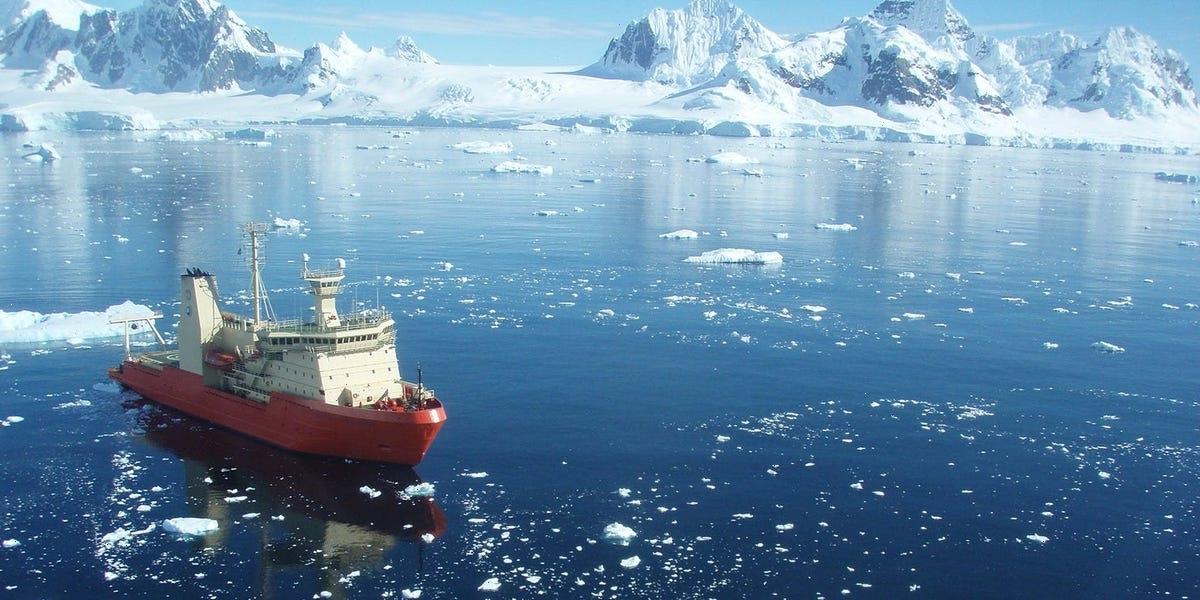- Scientists say if the West Antarctica Ice sheet were to collapse, global sea levels could rise by about 10 feet.
- But a new study says that this figure could be about 3.3 feet higher.
- That is because as the glaciers melt, the bedrock under the ice sheet could rise out of the ocean.
- See more stories on Insider’s business page.
The global sea-level rise due to the melting of Antarctic ice sheets in the next 1,000 years could have been underestimated by about 30%, a new study says.
Previous studies had estimated that if the West Antarctic ice sheet were to collapse, the sea levels would increase by about 10 feet.
But the new study, which was published in the peer-reviewed Science Advances journal on Friday, suggests that an effect called the “water-expulsion mechanism” had been underestimated.
The effect refers to the bedrock beneath the West Antarctic ice sheet, which scientists predict will rise above sea levels when the ice sheet melts.
The new calculation of this effect shows that over the next 1,000 years, the world’s sea level could rise by one meter —about 3.3 feet — higher than previously predicted.
Scientists had previously “dismissed it as inconsequential,” Linda Pan, a lead author on the study, said in a press release.
Dr. Andy Smith, a science leader at the British Antarctic Survey who wasn’t involved in the study, told Insider: “This paper is another incremental improvement to our ability to project what the melting ice sheets will contribute to sea level in the future.”
Because the bedrock underneath the West Antarctic ice sheet is somewhat elastic, scientists believe it will lift above sea level when the ice sheet melts. As this happens, it could push the water around the glacier into the surrounding ocean, adding to the global sea-level rise.
Scientists already knew this. But the new evidence suggests the underlying Earth is less viscous than previously thought, so the bedrock could rise faster than first expected, Smith, of the British Antarctic Survey, told Insider.
Pan added in a press release: “No matter what scenario we used for the collapse of the West Antarctic Ice Sheet, we always found that this extra one meter of global sea level rise took place.”
“The magnitude of the effect shocked us,” Pan said.
Every single estimate of sea level rise “is going to have to be revised upward” because of this work, Jerry X. Mitrovica, a professor of geophysics at Harvard and an author on the paper, said in a Friday statement.
Scientists are concerned that the collapse of the West Antarctic ice sheet could be unstoppable.
One glacier on the ice sheet, the Thwaites Glacier — which is two-thirds the size of Manhattan — is receding by about half a mile per year, and warming waters have created a cavity underneath.
Scientists have nicknamed this glacier the “Doomsday Glacier” because it is acting as a buffer between the ice sheet and warming waters.
As it melts away, scientists predict it will trigger a cascading effect taking the neighbouring glaciers along, Insider’s Aylin Woodward reported last year.
Source: Read Full Article
